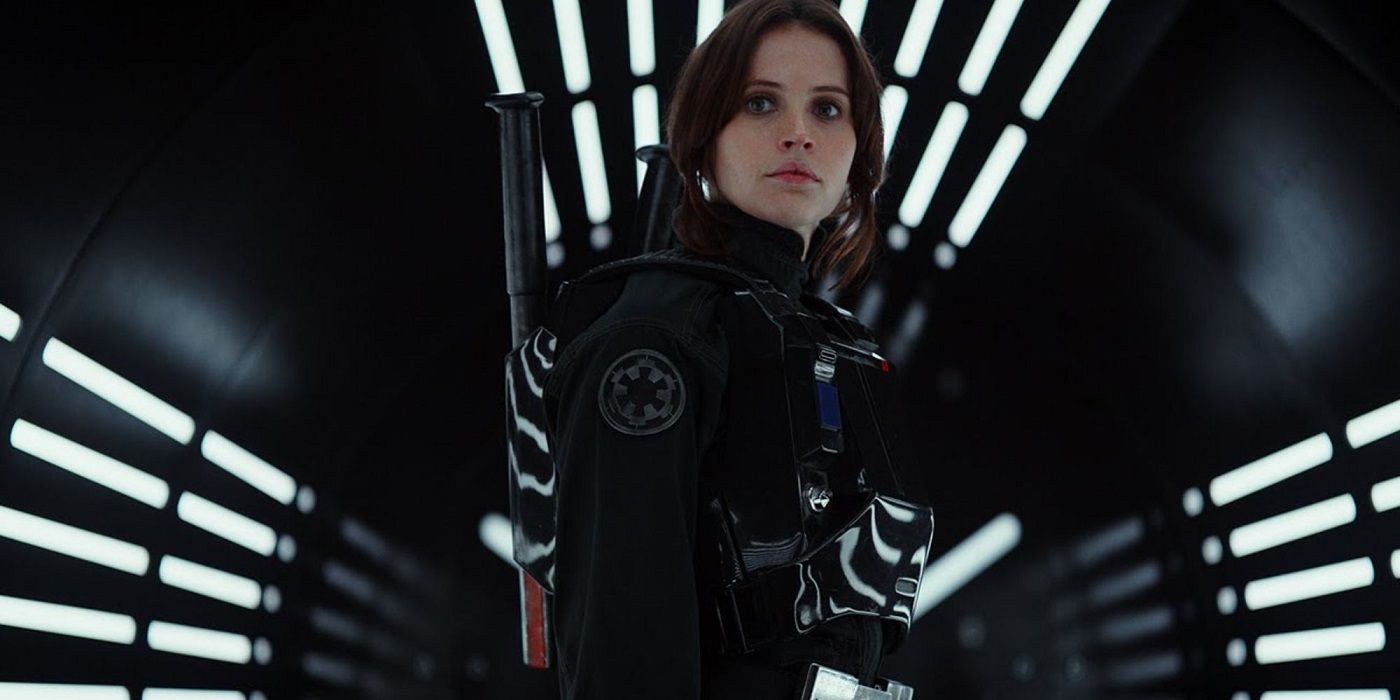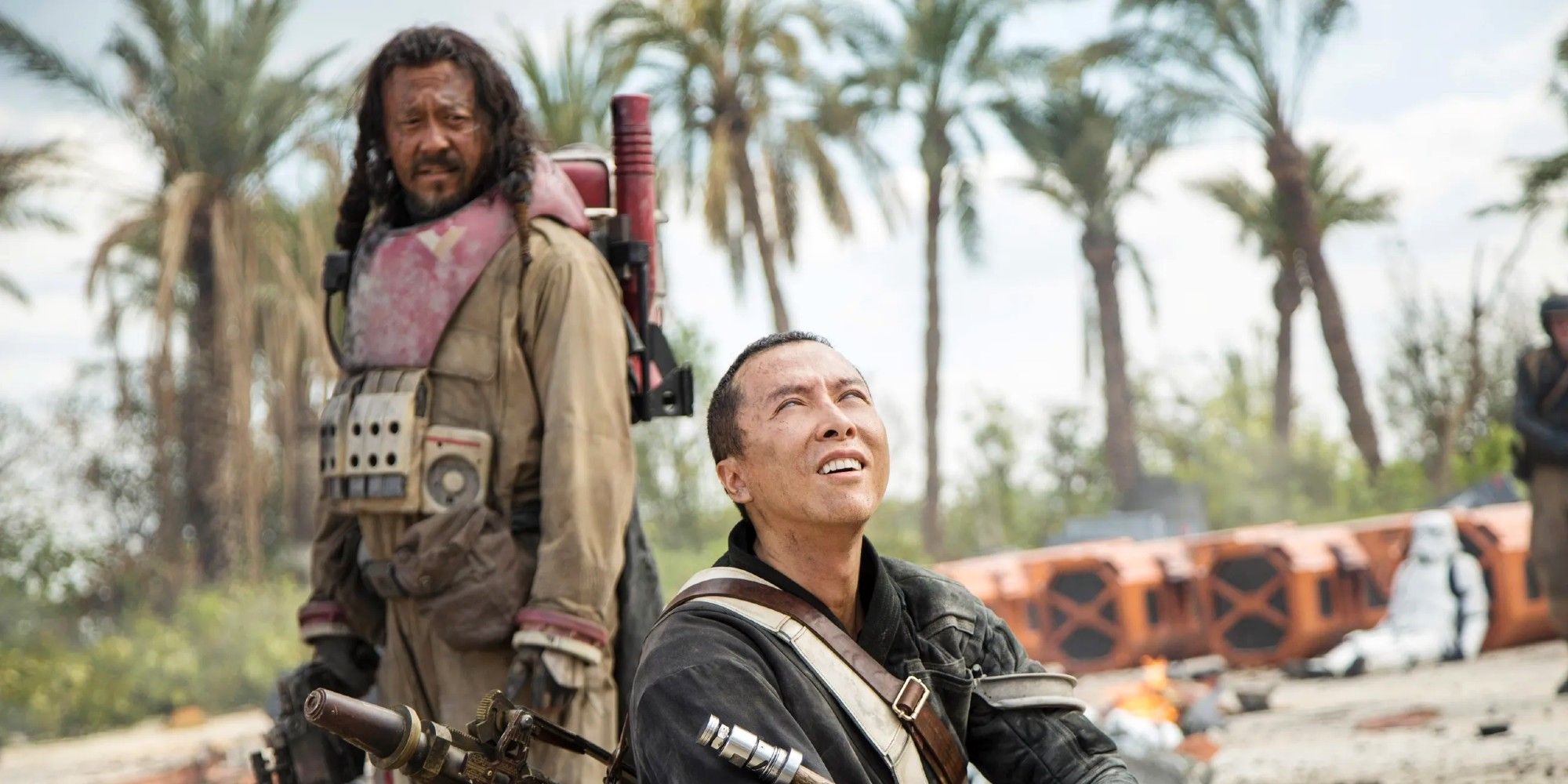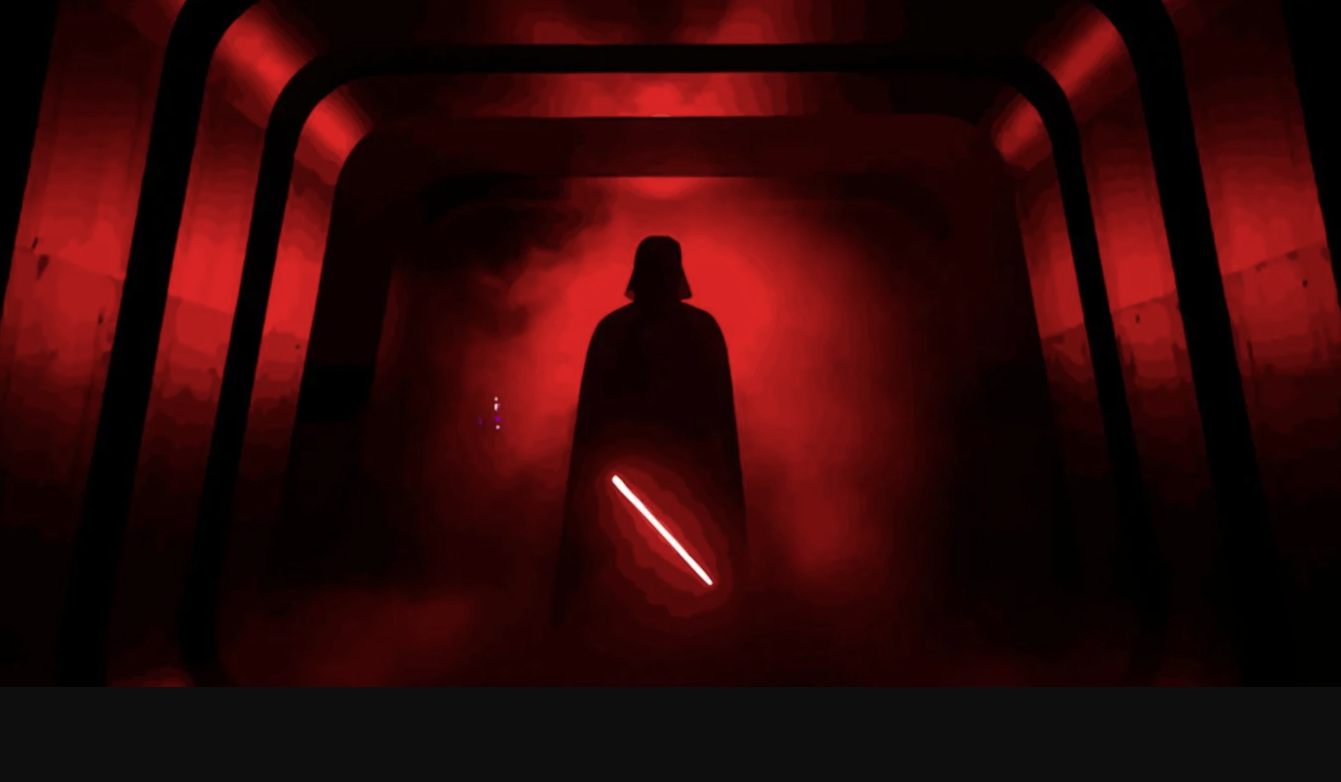The legendary Star Wars franchise has seen more highs and lows than a landspeeder, from the heights of The Empire Strikes Back to the lows of Attack of the Clones. The opening text crawl. The stirring John Williams scores. Epic take-downs of giant battle stations. Lightsaber fights. But what would you say if you were told the best film in the franchise has none of these elements? This brings us to Rogue One: A Star Wars Story. No text crawl. A different composer. No lightsabers. No Skywalkers (mostly). It's about a group of rebels who join together to steal the plans for the Empire's Death Star... period. And it is perfect.
Unbound by the mythology of the main Star Wars films, Rogue One only has one purpose, and that is to explain how the Death Star plans make it to the Rebels before A New Hope. It doesn't need to catch up on the will they/won't they of Han (Harrison Ford) and Leia (Carrie Fisher), or Luke's (Mark Hamill) Force training and endless drivel about how there's still good in dear old dad. This gives the film freedom to create, while having a focused approach to its end goal, and that is captivating. We know the plans get to where they are going, but we are enraptured by the journey. By having that focused approach, it also gives Rogue One the feel of a classic war film that doesn’t get derailed by the Force, or by Jedis, or Sith (mostly, but we'll get to that). These are combatants in a battle against oppressors that need to fulfill a mission they may not survive, placing the film among such hard-hitters as The Dirty Dozen or Force 10 From Navarone (with Han Solo himself, Harrison Ford).
The characters in Rogue One are among the most deeply developed and complex in the franchise. Jyn Erso (Felicity Jones) is not a saint but fights to be better. Cassian Andor (Diego Luna) is a longtime Rebel leader and intelligence officer who struggles with his duty versus his heart. Bodhi Rook (Riz Ahmed) is a former Imperial pilot, a cog in their system that falls into the hands of the Rebellion, who must overcome his anxiety and fear of the Empire to help the rebels. Droid K-2SO (Alan Tudyk), too, formerly sided with the Empire until being reprogrammed to serve the Rebellion. Galen Erso (Mads Mikkelsen), Jyn's father, is a good man, a research scientist captured by the Empire and forced to draw up plans for the Death Star, leaving him to publicly side with the Empire while working surreptitiously to add an Achilles' heel to the mighty battle station.
Two characters, though, represent a new interpretation of the Force. The first is Chirrut Îmwe (Donnie Yen), a blind warrior, and what makes him unique is that he is a strong believer in the Force (repeating his mantra "the Force is with me, I am one with the Force" over and over), a user of the Force, but is neither Jedi nor Sith, where most Force-sensitive characters are on one side or the other. His use of the Force is also more grounded, something that allows him to function and fight despite being visionless. The second character's use of the Force is actually far more impressive as it has impacts on the films that follow in sequence. That character? The one and only Darth Vader (Spencer Wilding/Daniel Naprous). His wielding of the Force to viciously cast aside rebel soldiers as the Death Star plans are taken by the Tantive IV reestablishes the character's true villainy after having it neutered by the infamous "NOOOO!" at the end of Revenge of the Sith. It's also the first time we see Vader use the Force to such a deadly extreme, adding a level of menace to the character unseen prior and effectively driving home the notion that Anakin Skywalker, truly, is dead.
The action scenes in the film are top-notch, with the battle between Imperial and Rebel forces on the skies above Scarif and on the planet itself especially good (it's especially welcoming to see gritty ground warfare on a spectacle level), with real casualties, real danger, and an emotional depth that isn't present in the legacy series. We know the good guys will win in A New Hope and Return of the Jedi. There's no real fear that beloved characters are going to die, or that the Rebellion will fall. And although we do know the good guys win in Rogue One, we don't know going in the true depth of the sacrifices they make, or if the characters we've just been introduced to live or die. We are emotionally invested instead of simply anticipating how things play out.
Most importantly, Rogue One gives us a reason to believe that a small group of misfits can make a difference. Or, perhaps more truthfully, one person can make a difference. The pivotal key to this is Jones’ Jyn Erso. She holds to her faith in her father, rewarded when he tells her of the Achilles' heel he planted in the exhaust port. Jyn is our presence before the Alliance Council, disillusioned and frustrated with their resignation and inaction. When she's had enough, Jyn delivers a speech that silences the entire room, chastising them for their lack of hope, and taking it upon herself to take on the mission to retrieve the plans. She doesn’t know if they’ll survive it, if they will even be successful, or if anyone will even accompany her. But because she so strongly believes in it, it not only stirs the Rebels to action but helps us to understand just how important the mission is in uniting the Rebellion's forces and its future. Jyn, alone, ignites the belief that the Empire can be defeated. Without Jyn, the Rebellion would fracture, torn apart by an ever-increasing dread that they simply cannot win against the Empire. And without Rogue One, we can’t see the journey that forges Jyn into a heroine for the ages.



